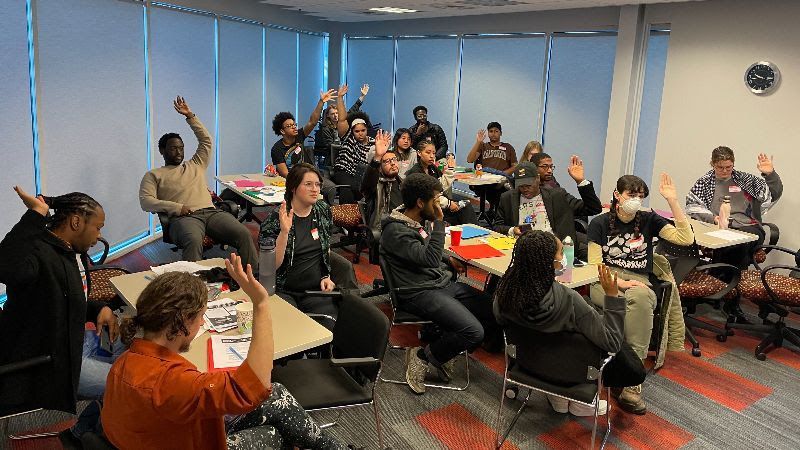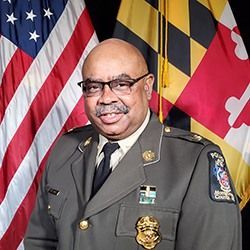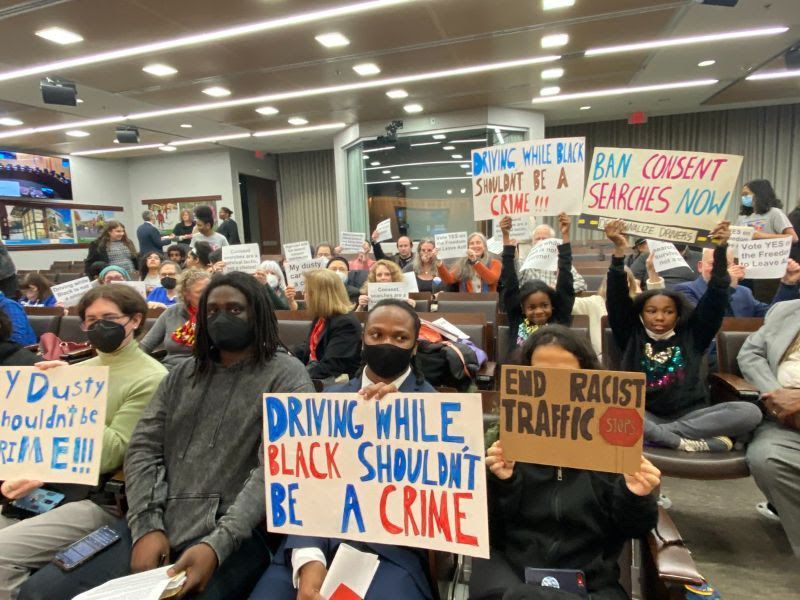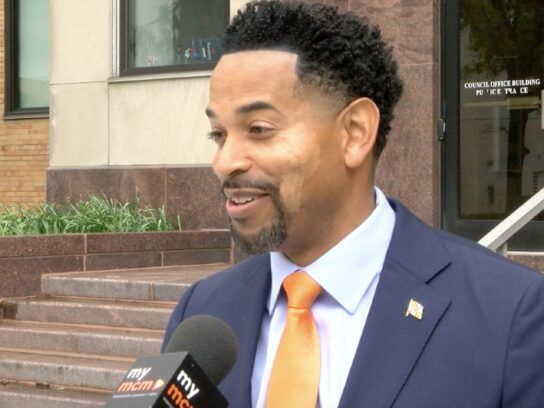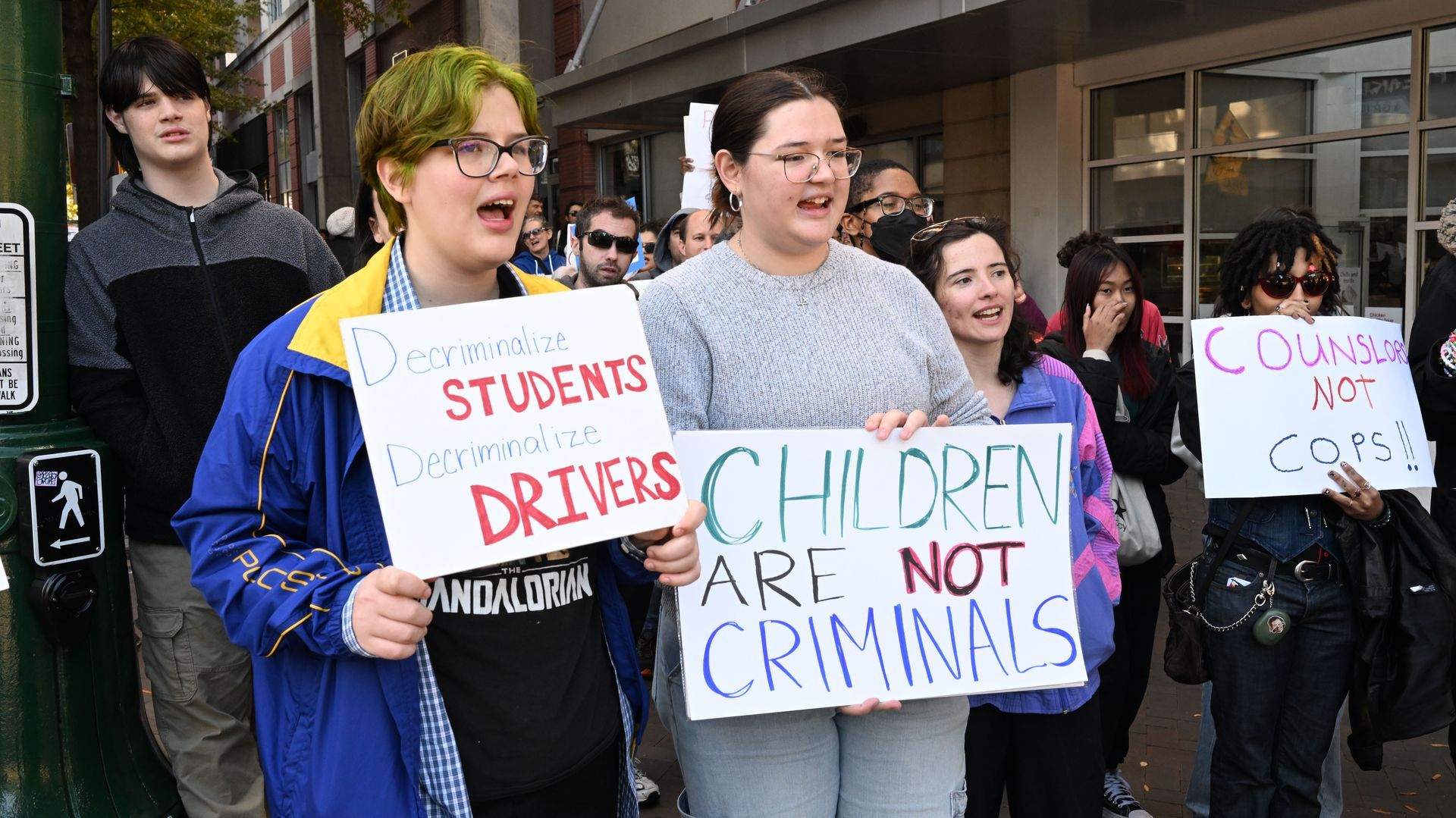Blog Layout
April 13, 2024
Debrief: County Council Budget Hearings!
Earlier this week, YPP, eight YPP high school student leaders, and community members testified in support of restorative justice. This year, we asked the County Council to add funding to the proposed MCPS budget, in order to maintain FY 24 funding for restorative justice coach stipends and specialists. The Council is considering cutting some RJ coach stipends and three RJ specialists in the upcoming budget, which would make it even more challenging for schools to transition away from punitive discipline.
Our high school student leaders shared their experiences with unfair school discipline and how RJ could have helped them resolve conflict and repair relationships with their teachers and fellow students. Other students explained how they already incorporate RJ principles, like personal accountability and self-sufficiency, into their academic lives, and how restorative justice would enable MCPS to incorporate these values districtwide. Still others shared statistics about how restorative justice is effective at shrinking the school-to-prison pipeline: 81% of RJ service calls last year did not repeat the violation and Black student suspensions in RJ focus schools dropped by 41%.
Next steps:
We need to continue the momentum by showing a diverse, yet united wave of support for RJ in front of key policymakers. If you would like to attend the following events, please email amyra@ypforprogress.org.
Councilmember Jawando Education Budget Forum:
Date/time: April 16, 7 PM
Location: Montgomery Blair High School (51 University Blvd E)
Description: The Chair of the Education & Culture Committee, Councilmember Jawando, will answer audience questions during his education budget forum, along with the President of Montgomery College and MCPS’ Interim Superintendent: Monique Felder.
Education & Culture Committee Worksession
Date/time: April 22, 1:30 PM
Location: Stella Werner Council Office Building (100 Maryland Ave)
Description: The Committee members will decide how RJ will be funded in this worksession. Come out and pressure the Councilmembers to vote to fund RJ at the FY 24 level!
We also encourage folks to call/email their Councilmember in support of our funding ask. You can review the call/email script here.

October 8, 2022
Effective Law Enforcement for All (ELEFA) conducted an audit on the Montgomery County Police Department (MCPD). Silver Spring Justice Coalition (SSJC) recently submitted a letter in response to the audit. Young People for Progress fully endorses the improvements proposed by SSJC. In our own letter , we highlight two important issues regarding young people and police. Traffic stops do not need to be a police function. Traffic stops are the most common way civilians interact with police, especially for Black drivers. Traffic enforcement could be handled by a civilian agency, such as the Department of Transportation. Police should not be in schools. There is no security rationale for police in schools and they are detrimental to a student’s well-being, especially for Black and Latino students. Funding for the CEO program should be reallocated to the other reforms mentioned in the report. You can read the full letter below. October 3, 2022 David L. Douglass Ashley Brown Burns Effective Law Enforcement for All Re: ELEFA’s audit of Montgomery County Police Department (MCPD) Dear Mr. Douglass and Dr. Burns, On behalf of the youth and young adult members throughout Montgomery County who make up Young People for Progress, I write to share our observations on ELEFA’s draft final report evaluating MCPD. Young People for Progress fully endorses the improvements proposed by the Silver Spring Justice Coalition in its recent letter and we trust you will consider them carefully; adopting these recommendations will strengthen the report so that it can be a more useful tool for advancing public safety in the county. In the present letter, I wish to highlight two issues that are of particular importance to young people in the county: removing police from schools and from traffic enforcement. After considering the points below, we hope you will revise the draft to recommend that police not be involved in either of t hese matters. Police should not be in schools If the county aspires to be a place where everyone feels safe, then armed police officers cannot be a fixture in our schools. Police officers’ effect on many students is to make them feel less safe, not more so, and this is true whether they are called School Resource Officers, Community Engagement Officers, or any other title. These students’ anxiety is grounded in the reality of racially disparate treatment by police, and this reality is not negated by the friendly demeanor of an individual CEO. Schools should be protective environments where all students feel at ease and can focus on learning; hosting police works against that goal. Not only is the CEO program detrimental to many students' emotional well-being, but there is also no security rationale for it. CEOs serve no beneficial law enforcement function that cannot be performed equally well (or better) by having police respond when needed. The current memorandum of understanding between MCPS and MCPD recognizes that officers should take the lead only in a narrow, enumerated set of critical incidents; fortunately, these situations are very rare in MCPS, so there is no need for police to maintain offices in schools. in practice, regardless of any policy, officers’ regular presence in schools leads to police being involved in issues best h andled by educators, thus unnecessarily criminalizing Black and brown kids (and high schoolers are indeed kids) with lifelong repercussions. While it is encouraging, as noted in SSJC’s letter, that Mr. Douglass recognizes the current CEO 2.0 program as a disappointment, that assessment should be stated in ELEFA’s report. Furthermore, given the harms that this program causes, we hope you will advise MCPD to discontinue the CEO program and reallocate those resources towards implementation of the other reforms recommended in your report. Traffic stops do not need to be a police function Reducing people’s involuntary interactions with police is a reliable way to reduce the risk of problematic incidents by police. Since traffic stops are the most common type of encounter b etween the public and police, removing that task from police would go a long way towards making drivers of color feel safer in Montgomery County. Given the draft’s laudatory review of how traffic stops are conducted, we are concerned that the authors do not appreciate the extent to which the very act of being stopped is a fearsome experience, particularly for Black drivers and especially younger Black drivers. But it doesn’t have to be this way. Traffic enforcement could be handled by a civilian agency, such as the Department of Transportation. Civilian employees enforce plenty of laws and regulations every day and there is no reason that traffic laws could not be among them. We encourage ELEFA to recommend that the functions of MCPD’s Traffic Operations Division be moved outside the police department. Young People for Progress appreciates the opportunity to provide input on this report and we look forward to your expanded consultation with the community as this process moves ahead. Sincerely, Alexander Blocker Vice President, Young People for Progress Copy: County Executive Marc Elrich Members of the County Council


